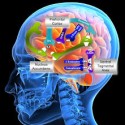The Genetics of Alcoholism
Alcohol consumption is probably as old as human civilization, and so is its abuse. The social and physiological ill effects of alcoholism are well known. What is less clear is why certain individuals are more predisposed to it. Alcohol addiction is a multifactorial phenomenon where personality traits, individual and social influences interact with neurobiology, creating varied clinical results and manifestations. The effect of alcohol on the central nervous system has been established but the exact mechanisms of action remain obscure. Alcoholism has different facets, from habitual intake, to problematic abuse, to addiction resulting in severe physiological damage.
Research now supports the idea that along with other social factors, genetics has an important and critical contribution in the progression of alcoholism.
The comparison of monozygotic and dizygotic twins in different studies has shown a significant correlation between hereditary and alcohol abuse. Children of alcoholic biological parents who were adopted at birth develop alcohol addiction more frequently compared to adopted children with no alcoholic parent. There is a lower genetic risk for alcohol dependence among women.

There is a link between alcoholism and genetics.
Candidate gene studies have implicated the genes encoding alcohol metabolising enzymes in the liver like alcohol dehydrogenase (ADH), the microsomal oxidation system (MEOS) and the aldehyde dehydrogenase (ALDH) in the development of alcohol addiction. Genetic studies conducted in various ethnic groups have confirmed that certain allele variations of ADH and ALDH are linked either in development of or in protection from alcohol addiction through a mechanism that is not yet known. The alleles influence the various alcohol addiction syndromes, such as tolerance, sensitivity and dependence. In addition to these genes, neurotransmitter genes have been associated with increased risk for alcohol dependence. Alcohol modifies the neurochemical milieu and acts on many different neuroreceptors although there is no known receptor for alcohol in the brain.
Although the theory that a distinct type of personality leads to alcohol dependency has been rejected, some traits such as low self-esteem and antisocial behavior have been found to be positively correlated to alcoholism. Social modeling and conditioning seem to be significant psychological factors in the development of alcohol addiction. Thus, a complex web of genetic and environmental factors contributes to alcoholism.
Alcoholism is a major economic burden and public health issue. Delineating the genetic components can not only offer information about the risk factors, but also form the theoretical basis for development of therapeutic and educative regimes for its prevention.
source: Brain Blogger
